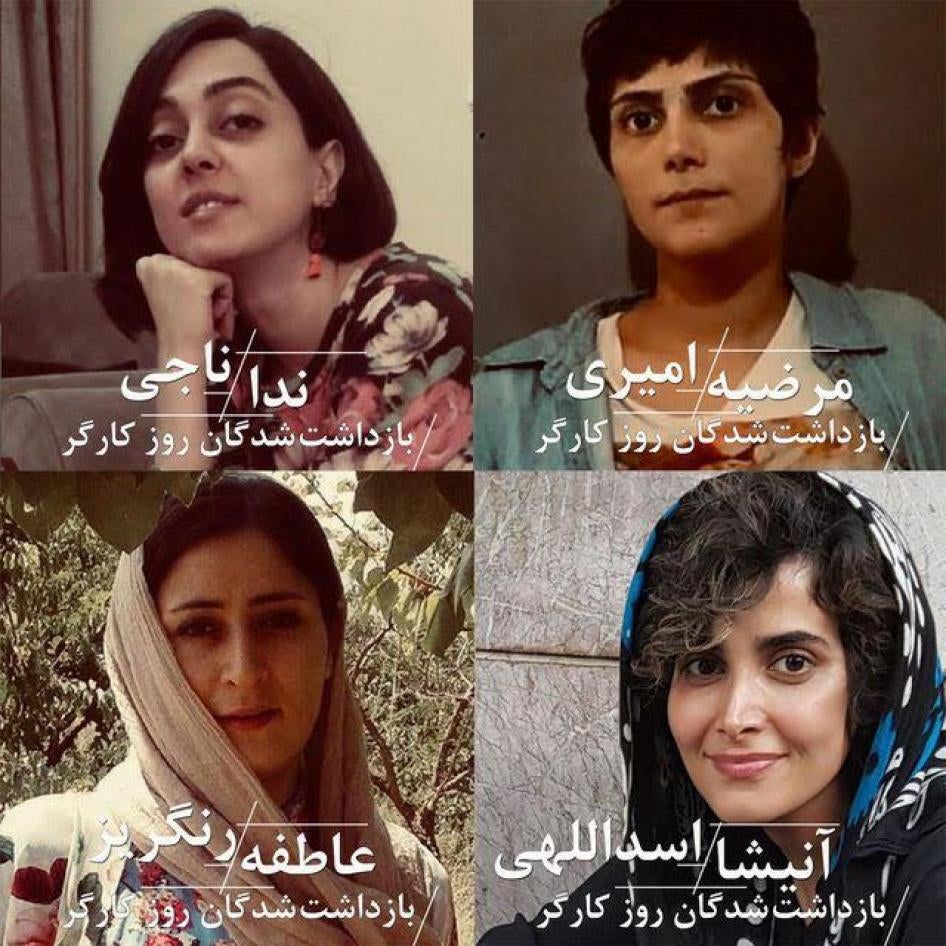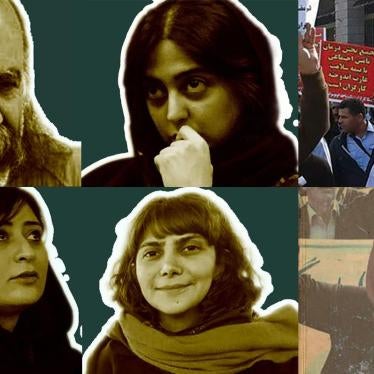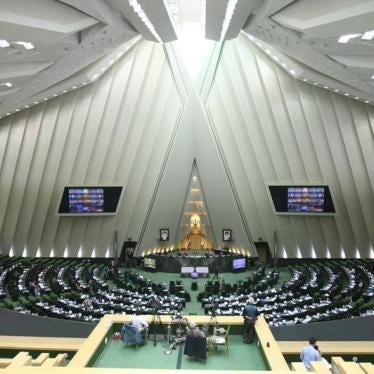(Beirut) – The Iranian judiciary should release three women labor activists and a journalist who are still in jail two months after they were detained following a May Day demonstration in Tehran protesting the difficult economic condition workers face, Human Rights Watch said today. The four detainees appear to be detained solely because of their participation in the peaceful assembly.
On May 1, 2019, which is International Labor Day, plainclothes police arrested at least 35 activists who had gathered in front of the Iranian parliament in a peaceful demonstration organized by 20 independent labor organizations, including an independent trade union previously targeted by the government. Most were released on bail in the following days and weeks, but authorities continue to detain activists Neda Naji and Atefeh Rangriz and journalist Marzieh Amiri, on accusations of “disrupting public order” and “acting against national security.” On June 18, authorities re-arrested Anisha Assadollahi, an activist who had been released on bail a few days after her initial arrest on May 1.
“It appears Iranian authorities are punishing these four women solely for their peaceful activism,” said Michael Page, Middle East deputy director at Human Rights Watch. “Iran’s judiciary has the authority to release them and should do so immediately.”
Ministry of Intelligence officers interrogated Naji, Rangriz, and Amiri over the course of seven weeks in Evin prison’s Ward 209, according to two sources who wished to remain anonymous for fear of reprisals.
Authorities then transferred Amiri to the women’s ward in Evin prison and Rangriz and Naji to Qarchak prison, where they are detained with 170 other inmates facing charges including theft and murder. Jamal Ameli, Naji’s husband, tweeted about the conditions his wife was being held in on June 24. According to Ameli, a number of detainees in Qarchak prison are suffering from diseases such as HIV and hepatitis, and hygiene and access to treatment in prison is “wretched.” Prison tap water is not drinkable and prisoners are forced to buy bottled water costing 40 times the market price, he added in a follow-up tweet.
Twelve security officers re-arrested Assadollahi in front of her workplace on June 18 and escorted her to her and her brother’s apartments, which they searched before transferring her to Evin prison, a source told Human Rights Watch. She is currently in solitary confinement and authorities have not allowed her family to visit her in prison, the source added.
Iranian law mandates the separation of inmates based on their alleged offenses. The United Nations Standard Minimum Rules for the Treatment of Prisoners (Mandela Rules) requires that states provide prisoners access to adequate medical care and drinking water at all times.
Iran’s labor law does not recognize the right to create labor unions independent of government-sanctioned groups such as the Islamic Labor Council. Nonetheless, workers have formed large, independent unions, including the Syndicate of Workers of Tehran and Suburbs Bus Company, Haft Tappeh Sugar Cane Workers’ Syndicate, and the Iran Free Workers’ Union. Over the past decade and a half authorities have repeatedly harassed, arrested, and jailed workers affiliated with these and other independent trade unions.
Other labor rights activists currently in detention include Ismael Bakhshi, Sepideh Gholian, Amir Aligholi, Sanaz Allahyari, and Amir Hossein Mohammadifar, as well as Ismael Abdi, Mohammad Habibi, and Mahmoud Beheshti Langroudi, three prominent members of Iran’s Teachers Union who have been sentenced to prison terms ranging from 5 to 7.5 years for their peaceful activism.









